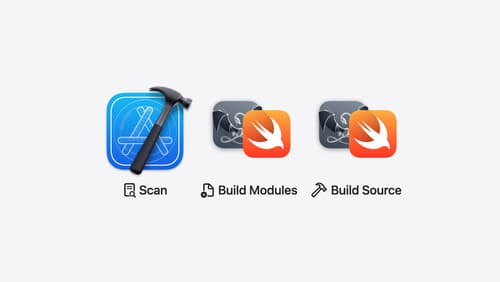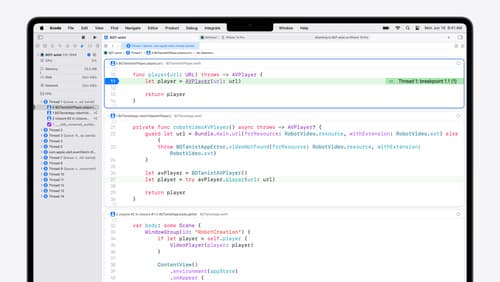are there any changes in iOS 18 regarding shared dependencies between multiple targets
Asked on 2024-09-06
1 search
In iOS 18, there are several enhancements related to shared dependencies between multiple targets, particularly in the context of explicitly built modules. The session "Demystify explicitly built modules" discusses how explicitly built modules can help unify project settings, allowing modules to be shared more effectively between source files. This approach can reduce the number of module variants and improve build performance by enabling parallel module builds, which are more predictable and reliable. This is particularly useful when dealing with shared dependencies across different targets in a project.
For more details, you can refer to the session Demystify explicitly built modules (11:28) which covers optimizing your build with explicitly built modules.

Port advanced games to Apple platforms
Discover how simple it can be to reach players on Apple platforms worldwide. We’ll show you how to evaluate your Windows executable on Apple silicon, start your game port with code samples, convert your shader code to Metal, and bring your game to Mac, iPhone, and iPad. Explore enhanced Metal tools that understand HLSL shaders to validate, debug, and profile your ported shaders on Metal.

Demystify explicitly built modules
Explore how builds are changing in Xcode 16 with explicitly built modules. Discover how modules are used to build your code, how explicitly built modules improve transparency in compilation tasks, and how you can optimize your build by sharing modules across targets.

What’s new in Xcode 16
Discover the latest productivity and performance improvements in Xcode 16. Learn about enhancements to code completion, diagnostics, and Xcode Previews. Find out more about updates in builds and explore improvements in debugging and Instruments.
